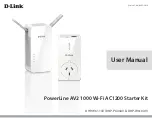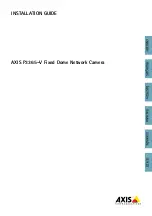
58
2 System Board
The Input/Output Controller Hub (82801AA)
HP MaxiLife Hardware
Monitoring Chip
MaxiLife is a hardware monitoring chip which is resident on the system
board. Its responsibility includes On/Off and reset control, status panel
management (Lock button, LEDs), hardware monitoring (temperature and
voltage), early diagnostics (CPU, memory, PLLs, boot start), run-time
diagnostics (CPU errors), fan speed regulation, and other miscellaneous
functions (such as special OK/FAIL symbols based on a smiling face).
The integrated microprocessor includes a Synopsys cell based on Dallas
“8052” equivalent, a 2 KB boot ROM, 256 bytes of data RAM, an I
2
C cell, an
Analog-to-Digital (ADC) with 5 entries, and an additional glue logic for
interrupt control, fan regulation, and a status panel control.
MaxiLife downloads its code in 96 milliseconds from an I
2
C serial EEPROM.
The total firmware (MaxiLife 8051-code, running in RAM) size is 14 KB. As
it exceeds the 2 KB program RAM space, a paging mechanism will swap
code as it is required, based on a 512 byte buffer. The first 2 KB pages of
firmware code is critical because it controls the initial power on/reset to
boot the system. This initial page is checked with a null-checksum test and
the presence of MaxiLife markers (located just below the 2 KB limit).
MaxiLife is not accessible in I/O space or memory space of the system
platform, but only through the SMBUS (which is a sub-set of the I
2
C bus),
via the ICH. Its I
2
C cell may operate either in Slave or Master mode,
switched by firmware, or automatically in the event of ‘Arbitration’ loss.
As a monitoring chip, MaxiLife reports critical errors at start-up, and is
therefore powered by Vstandby (3.3V) power. For MaxiLife to work, the PC
Workstation must be connected to a grounded outlet. This enables the PC
Workstation’s hardware monitoring chip to be active, even if the system has
been powered off.
Test Sequence and
Error Messages
Refer to
“MaxiLife Test Sequence and Error Messages” on page 107
for
detailed information about the different test sequences and error messages
Summary of Contents for Kayak XU800 Series
Page 1: ...HP Kayak XU800 PC Workstation Technical Reference Manual ...
Page 26: ...26 1 System Overview Documentation ...
Page 86: ...86 3 Interface Cards Network Cards ...
Page 106: ...106 5 HP BIOS BIOS Addresses ...
Page 130: ...130 6 Tests and Error Messages Error Message Summary ...
Page 140: ...140 7 Connectors and Sockets Rear Panel Socket Pin Layouts ...
















































